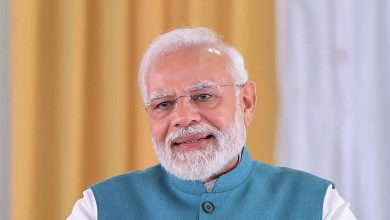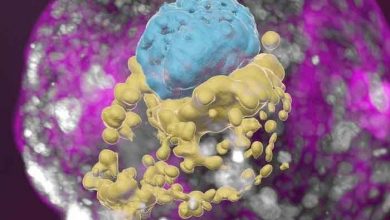Mental health issues have skyrocketed post pandemic: Dr Ankit Jain

Dr Ankit Jain, an American board-certified psychiatrist who specializes in treating various mental disorders in prestigious institutes in East coast of the US talks about the post pandemic mental health tips that all of us can practice daily. His research interests are focused on COVID-19 and its impact on mental health. He is currently working as an assistant professor and a researcher in the US who has authored over 25 articles in renowned journals, presented his work on national and international platforms, written multiple book chapters and he has been featured in expert talks for prestigious organizations. One of his research articles titled – Impact on mental health by “Living in Isolation and Quarantine” during COVID-19 pandemic- which is published in the Journal of family medicine and primary care has been cited about 30 times by international researchers. In this article, he notes that mental health has gotten tremendous importance especially due to COVID. In the first year of the COVID19 pandemic, global prevalence of anxiety and depression increased by a massive 25%, according to a scientific brief released by the World Health Organization (WHO). The beginning of the pandemic appears to have had the greatest impact on mental health. After more than two years of illness, upheaval and loss, many of us are being asked to return to something resembling our pre pandemic lives. Offices are filling up; masks are coming off and more governments and organizations are making plans to “live” with the virus. For some people, the feelings of anxiety and depression that emerged during the pandemic will resolve as routines resume — people go back to the office, social connections are reformed, the seeming danger of activities dissipates. But others will face new or worse mental health issues that persist or even appear down the road, a number that could be quite large given the magnitude of despair and disruption.
Dr Jain stresses that in countries with limited resources and settings, many people have sought support online, signaling an urgent need to make reliable and effective digital tools available and easily accessible. However, developing and deploying digital interventions remains a major challenge in most countries. It is important to practice mindfulness as we navigate a more open, social world, and continue to take out time for yourself. You can do this through methods such as meditation or composing a gratitude list about things in your life. Reflecting on what you want your life and health to look like can be a strong motivator in helping people take healthy action towards a desirable future. If you are new to mindfulness, consider apps such as Calm, Insight Timer, Headspace, 10 Percent Happier, or search for guided meditations on YouTube. As you take back more control of your life, be mindful of who and what you give your energy to. Dr Jain also recommends regular exercise even if it’s for a few minutes in the day as exercise is a proven method for dealing with anxiety and depression. Studies show that spending time in nature reduces stress. Something as simple as tending to a garden or house plants or walking through a park can be calming. Choosing a diet with whole foods, including lots of vegetables, fruits and healthy grains, is good for a healthy body and mind. Eating well, staying hydrated and limiting the consumption of highly processed food can also help stabilize your mood. It is important to refrain from using alcohol and recreational drugs as a means to unwind as they can cause more harm to the physical and mental health than good. Lastly, Dr Jain advises it is always better to reach out to a professional for help to make sure mental health is just as balanced as physical health. He anticipates that mental health care will look very different 10 years from now, than it did in the last century combined ago but all of these positive changes would require all of us to come together and make mental health our priority.








